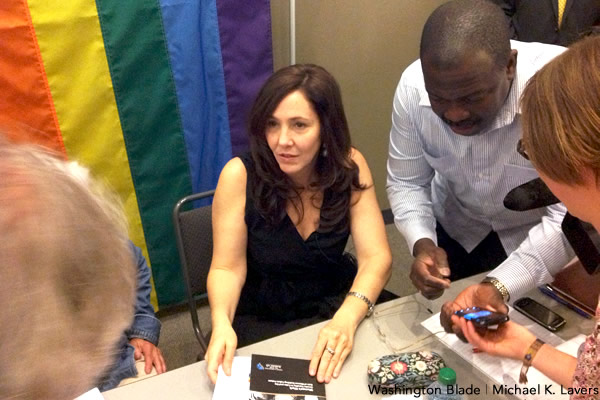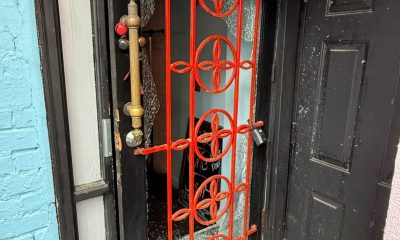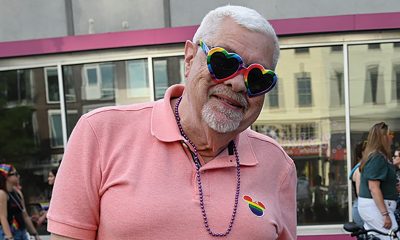National
LGBT rights group honors Mariela Castro
Ros-Lehtinen calls her ‘standard bearer’ for ‘oppressive’ regime
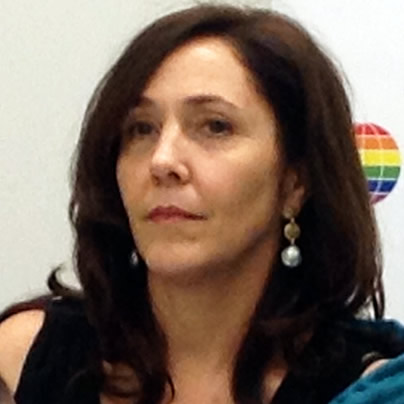
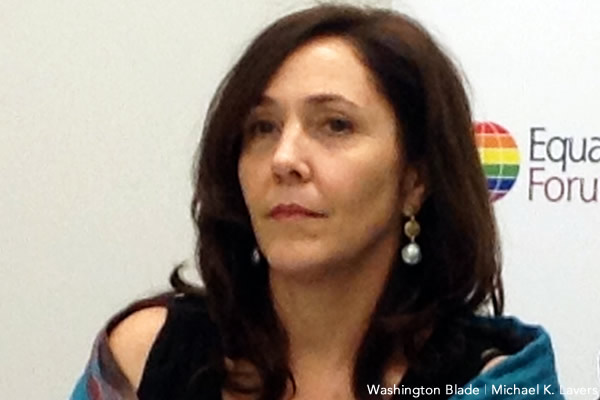
Mariela Castro spoke during a press conference in Philadelphia on May 4. (Washington Blade photo by Michael K. Lavers)
PHILADELPHIA – An advocacy group on Saturday honored Cuban President Raúl Castro’s daughter for her efforts in support of LGBT rights in Cuba.
“I’m very honored that this organization, Equality Forum, invited me to participate in this event this year,” Mariela Castro said during a press conference with the group’s executive director, Malcolm Lazin, at the National Museum of American Jewish History before she accepted her award.
“She is truly an international hero for LGBT equality,” Lazin added, noting there have been what he described as “remarkable changes for LGBT Cubans” because of Mariela Castro’s work as executive director of Cuba’s National Center for Sex Education (CENESEX.) “We are really very honored to have her here in the United States in an open forum.”
Mariela Castro has spearheaded a number of campaigns over the last decade to promote acceptance of LGBT Cubans and to curb the spread of HIV/AIDS on the island.
She successfully lobbied the Cuban government to begin offering free sex-reassignment surgery under the country’s national health care system in 2010.
Observers have credited Cuba’s condom distribution campaign and sexual education curriculum with producing one of the world’s lowest HIV infection rates. Cubans with the virus also have access to free anti-retroviral drugs through the country’s health care system.
Mariela Castro, whose uncle is former Cuban President Fidel Castro, in May 2012 appeared on a panel with Rea Carey, executive director of the National Gay and Lesbian Task Force, in New York while she and other Cuban scholars visited the United States. She also met with LGBT advocates in San Francisco during the trip.
CENESEX has also scheduled a series of events across the country between May 7-18 to commemorate the annual International Day Against Homophobia.
“I am very proud of how we have advanced [LGBT rights in Cuba,]” she said during a panel at the University of the Arts earlier on Saturday that former GLAAD President Jarrett Barrios moderated.
Sarah Stephens of the Center for Democracy in the Americas; Wilfredo Labiosa of the group Acceso and Philadelphia resident Ada Bella, who emigrated from Cuba to the United States in 1958 were the other panelists who joined Mariela Castro at the University of the Arts in Center City.
Mariela Castro, who has also spoken out in support of marriage rights for same-sex couples in Cuba, pointed out her mother, who directed CENESEX until she died in 2007, in the 1990s proposed an amendment to the country’s family code that would have defined marriage as a union between two people regardless of gender. She said during the panel that religious leaders and other Cubans questioned and even criticized her previous efforts to extend marriage and adoption rights to same-sex couples.
Mariela Castro added she plans to continue to fight for these issues once she returns to Cuba.
“We want everybody to have the same rights,” she said. “I think that same-sex couples should have the same rights.”
Some Cuban LGBT advocates remain critical of the government and Mariela Castro herself in spite of these efforts.
Leannes Imbert Acosta of the Cuban LGBT Platform claims authorities detained her last September as she left her Havana home to bring materials to CENESEX on a planned exhibit on forced labor camps known as Military Units to Aid Production – or UMAPs in Spanish — to which the government sent more than 25,000 gay men and others deemed unfit for military services during the 1960s. Ignacio Estrada Cepero, a gay man with HIV who founded the Cuban League Against AIDS in 2003, stressed during a New York City panel last year sponsored by Cuba Archive, a group that documents the Cuban government’s human rights abuses, that those with the virus on the island continue to face discrimination — including more than 500 people with HIV/AIDS he claims remain in prison for what he described as the crime of “pre-criminal social dangerousness.”
The Cuban government in 1979 repealed the country’s sodomy laws, but its critics continue to stress authorities use public decency and assembly laws to harass LGBT Cubans. Those with HIV/AIDS were forcibly quarantined in state-run sanitaria until 1993.
Fla. congresswoman blasts Mariela Castro
The State Department had initially denied Mariela Castro’s request to travel to Philadelphia, but Lazin on April 29 announced she had received the visa that allowed her to attend the event.
“Mariela Castro is the standard bearer for the oppressive Cuban dictatorship that has been wantonly violating people’s human rights for over 50 years,” Cuban-born Florida Congresswoman Ileana Ros-Lehtinen said in a statement she released on Friday. “To allow her to come to the U.S. yet again so she can proliferate the Castro propaganda machine is appalling.”
Herb Sosa, a first-generation Cuban American who is president of the Miami-based Unity Coalition, an LGBT advocacy group, also blasted Equality Forum’s decision to honor Mariela Castro.
“To reward any element of the decades-old dictatorship, especially for positive efforts on human rights — is a sad joke,” he told the Washington Blade. “The daughter and niece of the Castro dictators have blood on their hands. Her marches and public spectacles are nothing more than photo ops for a willing and enabling media that does not seem to want to ask too many questions.”
Lazin interrupted this reporter when he started to repeat his question to Mariela Castro’s interpreter about her reaction to those Cuban LGBT rights advocates and others on the island who have criticized both her and her father’s government.
“Let’s keep the questions to the award that Mariela is here for tonight, which is the International Ally for LGBT Equality,” Equality Forum Communications Director Chip Alfred told reporters during the press conference at the National Museum for American Jewish History. “She’s not here to talk about the politics in Cuba.”
Labiosa earlier in the day applauded Mariela Castro and the Cuban government for what he described as their efforts to advance the island’s LGBT rights movement.
“They have been able to move it to the new century,” he said as he compared it to those in the Dominican Republic, Puerto Rico and other Latin American countries and territories. “We as a country, as a movement can learn and should be able to be open to learn from the Cuban government and also from the CENESEX and from the people.”
New York
Men convicted of murdering two men in NYC gay bar drugging scheme sentenced
One of the victims, John Umberger, was D.C. political consultant

A New York judge on Wednesday sentenced three men convicted of killing a D.C. political consultant and another man who they targeted at gay bars in Manhattan.
NBC New York notes a jury in February convicted Jayqwan Hamilton, Jacob Barroso, and Robert DeMaio of murder, robbery, and conspiracy in relation to druggings and robberies that targeted gay bars in Manhattan from March 2021 to June 2022.
John Umberger, a 33-year-old political consultant from D.C., and Julio Ramirez, a 25-year-old social worker, died. Prosecutors said Hamilton, Barroso, and DeMaio targeted three other men at gay bars.
The jury convicted Hamilton and DeMaio of murdering Umberger. State Supreme Court Judge Felicia Mennin sentenced Hamilton and DeMaio to 40 years to life in prison.
Barroso, who was convicted of killing Ramirez, received a 20 years to life sentence.
National
Medical groups file lawsuit over Trump deletion of health information
Crucial datasets included LGBTQ, HIV resources
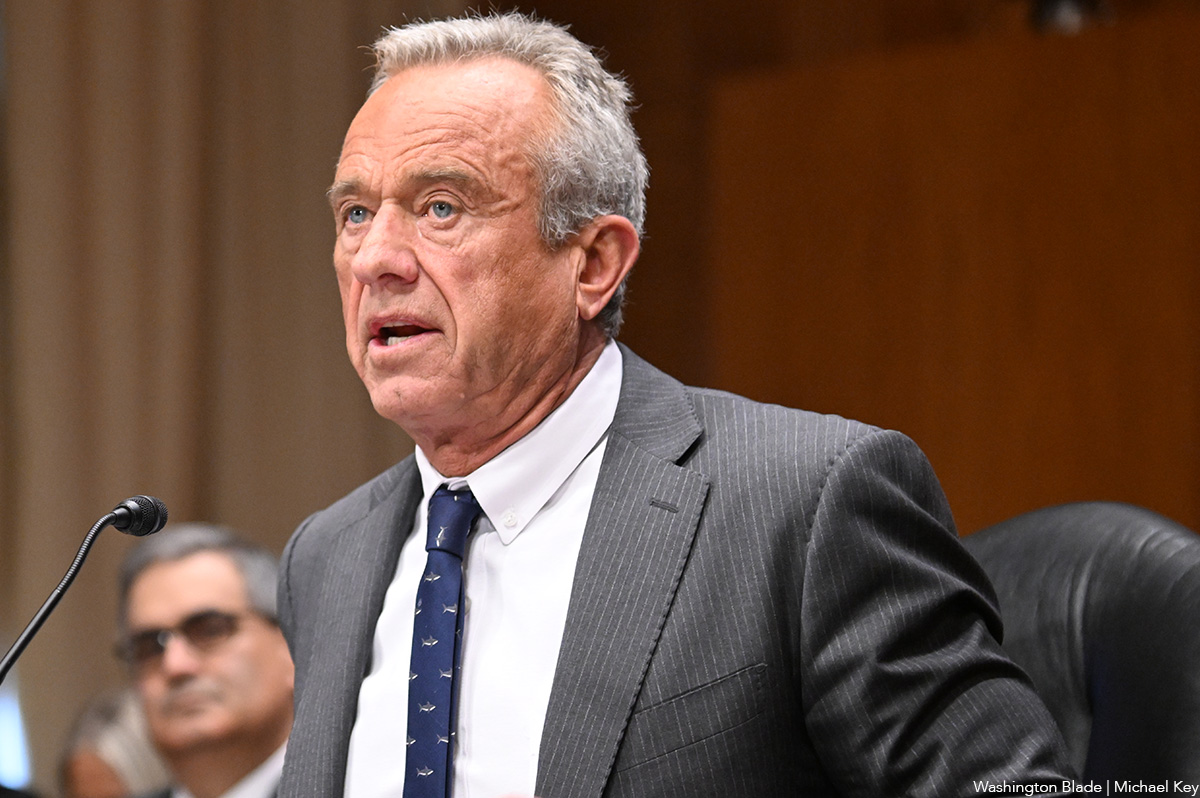
Nine private medical and public health advocacy organizations, including two from D.C., filed a lawsuit on May 20 in federal court in Seattle challenging what it calls the U.S. Department of Health and Human Services’s illegal deletion of dozens or more of its webpages containing health related information, including HIV information.
The lawsuit, filed in the United States District Court for the Western District of Washington, names as defendants Robert F. Kennedy Jr., secretary of the Department of Health and Human Services (HHS) and HHS itself, and several agencies operating under HHS and its directors, including the Centers for Disease Control and Prevention, the National Institutes of Health, and the Food and Drug Administration.
“This action challenges the widespread deletion of public health resources from federal agencies,” the lawsuit states. “Dozens (if not more) of taxpayer-funded webpages, databases, and other crucial resources have vanished since January 20, 2025, leaving doctors, nurses, researchers, and the public scrambling for information,” it says.
“These actions have undermined the longstanding, congressionally mandated regime; irreparably harmed Plaintiffs and others who rely on these federal resources; and put the nation’s public health infrastructure in unnecessary jeopardy,” the lawsuit continues.
It adds, “The removal of public health resources was apparently prompted by two recent executive orders – one focused on ‘gender ideology’ and the other targeting diversity, equity, and inclusion (‘DEI’) programs. Defendants implemented these executive orders in a haphazard manner that resulted in the deletion (inadvertent or otherwise) of health-related websites and databases, including information related to pregnancy risks, public health datasets, information about opioid-use disorder, and many other valuable resources.”
The lawsuit does not mention that it was President Donald Trump who issued the two executive orders in question.
A White House spokesperson couldn’t immediately be reached for comment on the lawsuit.
While not mentioning Trump by name, the lawsuit names as defendants in addition to HHS Secretary Robert Kennedy Jr., Matthew Buzzelli, acting director of the Centers for Disease Control and Prevention; Jay Bhattacharya, director of the National Institutes of Health; Martin Makary, commissioner of the Food and Drug Administration; Thomas Engels, administrator of the Health Resources and Services Administration; and Charles Ezell, acting director of the Office of Personnel Management.
The 44-page lawsuit complaint includes an addendum with a chart showing the titles or descriptions of 49 “affected resource” website pages that it says were deleted because of the executive orders. The chart shows that just four of the sites were restored after initially being deleted.
Of the 49 sites, 15 addressed LGBTQ-related health issues and six others addressed HIV issues, according to the chart.
“The unannounced and unprecedented deletion of these federal webpages and datasets came as a shock to the medical and scientific communities, which had come to rely on them to monitor and respond to disease outbreaks, assist physicians and other clinicians in daily care, and inform the public about a wide range of healthcare issues,” the lawsuit states.
“Health professionals, nonprofit organizations, and state and local authorities used the websites and datasets daily in care for their patients, to provide resources to their communities, and promote public health,” it says.
Jose Zuniga, president and CEO of the International Association of Providers of AIDS Care (IAPAC), one of the organizations that signed on as a plaintiff in the lawsuit, said in a statement that the deleted information from the HHS websites “includes essential information about LGBTQ+ health, gender and reproductive rights, clinical trial data, Mpox and other vaccine guidance and HIV prevention resources.”
Zuniga added, “IAPAC champions evidence-based, data-informed HIV responses and we reject ideologically driven efforts that undermine public health and erase marginalized communities.”
Lisa Amore, a spokesperson for Whitman-Walker Health, D.C.’s largest LGBTQ supportive health services provider, also expressed concern about the potential impact of the HHS website deletions.
“As the region’s leader in HIV care and prevention, Whitman-Walker Health relies on scientific data to help us drive our resources and measure our successes,” Amore said in response to a request for comment from the Washington Blade.
“The District of Columbia has made great strides in the fight against HIV,” Amore said. “But the removal of public facing information from the HHS website makes our collective work much harder and will set HIV care and prevention backward,” she said.
The lawsuit calls on the court to issue a declaratory judgement that the “deletion of public health webpages and resources is unlawful and invalid” and to issue a preliminary or permanent injunction ordering government officials named as defendants in the lawsuit “to restore the public health webpages and resources that have been deleted and to maintain their web domains in accordance with their statutory duties.”
It also calls on the court to require defendant government officials to “file a status report with the Court within twenty-four hours of entry of a preliminary injunction, and at regular intervals, thereafter, confirming compliance with these orders.”
The health organizations that joined the lawsuit as plaintiffs include the Washington State Medical Association, Washington State Nurses Association, Washington Chapter of the American Academy of Pediatrics, Academy Health, Association of Nurses in AIDS Care, Fast-Track Cities Institute, International Association of Providers of AIDS Care, National LGBT Cancer Network, and Vermont Medical Society.
The Fast-Track Cities Institute and International Association of Providers of AIDS Care are based in D.C.
U.S. Federal Courts
Federal judge scraps trans-inclusive workplace discrimination protections
Ruling appears to contradict US Supreme Court precedent
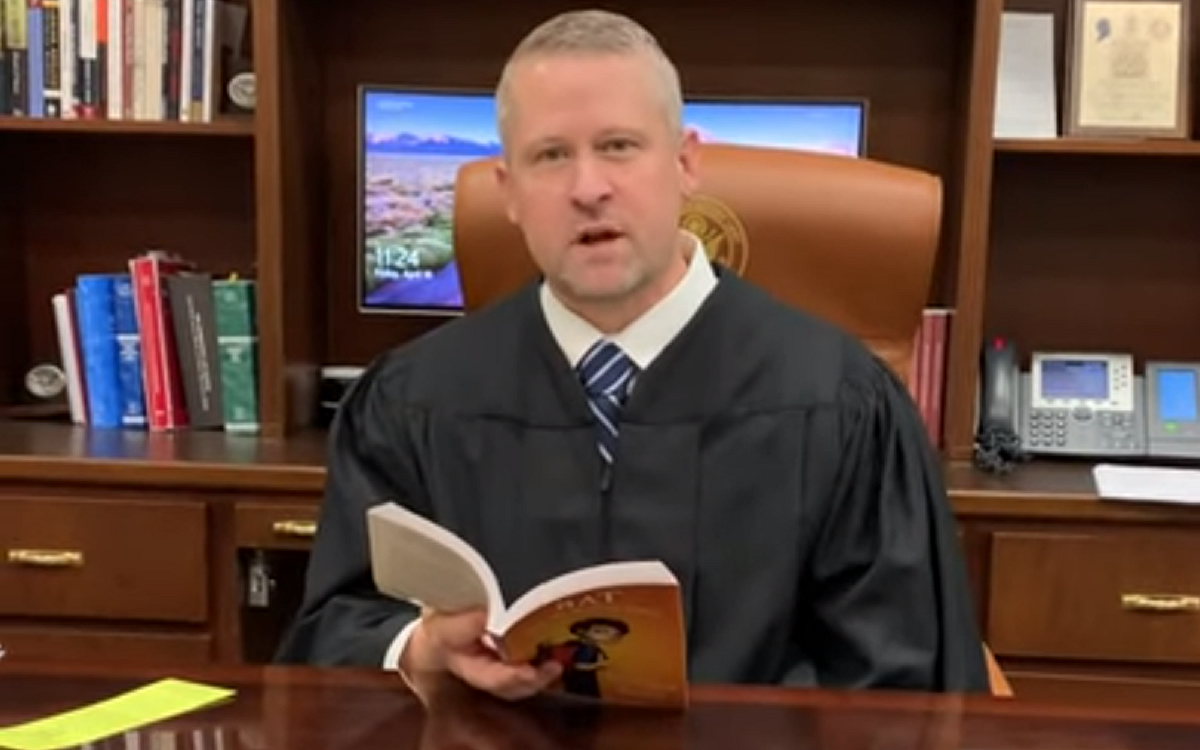
Judge Matthew Kacsmaryk of the U.S. District Court for the Northern District of Texas has struck down guidelines by the U.S. Equal Employment Opportunity Commission designed to protect against workplace harassment based on gender identity and sexual orientation.
The EEOC in April 2024 updated its guidelines to comply with the U.S. Supreme Court’s ruling in Bostock v. Clayton County (2020), which determined that discrimination against transgender people constituted sex-based discrimination as proscribed under Title VII of the Civil Rights Act of 1964.
To ensure compliance with the law, the agency recommended that employers honor their employees’ preferred pronouns while granting them access to bathrooms and allowing them to wear dress code-compliant clothing that aligns with their gender identities.
While the the guidelines are not legally binding, Kacsmaryk ruled that their issuance created “mandatory standards” exceeding the EEOC’s statutory authority that were “inconsistent with the text, history, and tradition of Title VII and recent Supreme Court precedent.”
“Title VII does not require employers or courts to blind themselves to the biological differences between men and women,” he wrote in the opinion.
The case, which was brought by the conservative think tank behind Project 2025, the Heritage Foundation, presents the greatest setback for LGBTQ inclusive workplace protections since President Donald Trump’s issuance of an executive order on the first day of his second term directing U.S. federal agencies to recognize only two genders as determined by birth sex.
Last month, top Democrats from both chambers of Congress reintroduced the Equality Act, which would codify LGBTQ-inclusive protections against discrimination into federal law, covering employment as well as areas like housing and jury service.
-
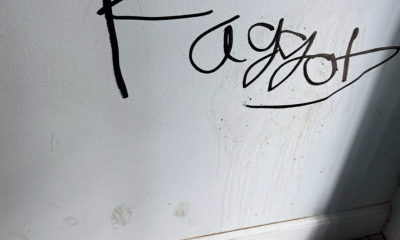
 District of Columbia4 days ago
District of Columbia4 days agoAdams Morgan queer bar broken into and vandalized
-

 Opinions5 days ago
Opinions5 days agoNew doc chronicles gay hero’s journey from rape to forgiveness
-
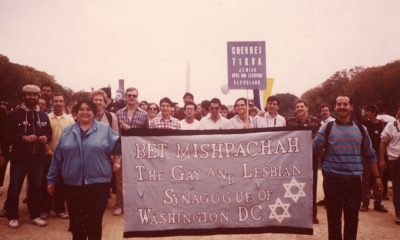
 District of Columbia5 days ago
District of Columbia5 days agoMurdered Israeli embassy officials were supporters of D.C.’s LGBTQ synagogue
-

 Opinions5 days ago
Opinions5 days agoUS hate groups fuel anti-LGBTQ rights movement in Africa

